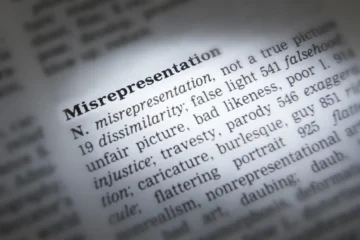How to Deal with Debt Collectors when you cant pay
How to Deal with Debt Collectors when you cant pay? Here we share some great tips to help you cope because we know that Debt Collectors have many tactics to collect payment on debts but there are some things they cannot do.
How to Deal with Debt Collectors when you cant pay
1. Don’t give in to pressure to pay on the first contact.
Just as you wouldn’t jump into a contract without understanding its terms, don’t rush to make a payment when a debt collector contacts you. Take time to think through your options.
Don’t pay, don’t promise to pay and don’t give any payment information the collector may use later. Ask for information on the debt and say you’ll call back to discuss it later.
2. Know your rights and how to use them.
The Debt Collectors Act is your ally. This law outlines your rights as a consumer and shields you from predatory collection tactics. For instance:
- Communication: You can specify how and when debt collectors can contact you — and that they cease communication altogether. Debt collectors are prohibited from using profane language or threatening violence.
- Honesty: Debt collectors cannot mislead you about who they are, how much money you owe, or the legal repercussions of not paying your debt — for instance, by threatening arrest.
- Challenging the debt: You have a right to dispute the debt. If you challenge the debt, the collector cannot ask for payment until the dispute is settled. After 30 days you can still challenge the debt, but the collector can seek payment while the dispute is being investigated.
- You have a right to obtain legal advice before signing anything. In the legal world, your signature on a document like for instance an acknowledgment of debt can have serious financial consequences.
- A right to be treated with dignity at all times.
- The right to confidentiality.
- The right not to be contacted before 6 in the morning or after 9 in the evening, or on a Sunday.
- The right not to be harassed, humiliated, embarrassed, or threatened.
- To receive a statement should you request one free of charge once every six months.
If you have a complaint against a debt collector, contact the Council for Debt Collectors
- All complaints must be in writing and under oath.
- If you have a complaint against the actions or conduct of a debt collector or are unsure of your rights:
Contact
The Council for Debt Collectors
PO Box 35629
Menlo Park, 0102
Tel: 012 804 9808 Fax: 012 804 0744
Email: info@cfdc.org.za
Check if you qualify for Debt Counselling.
Debt Counselling Applications can now be completed online, free, and in the comfort of your own home. Call us at 0878221249 or email us at queries@ndrc.org.za for help.
It is general practice that Debt collectors can:
- Harass and threaten people with dire consequences to get them to pay their debts. But in reality, if a debt collector is trying to collect an unsecured debt he is quite limited in terms of the legal actions he can take to collect from you.
- However, if the debt is secured (i.e a bond collection), the process is therefore different. In which your asset can be taken away if the debt isn’t kept up to date.
- Most debt collectors are paid based on the amount of money they collect. They may give up if the collection amount is small. However, you don’t get off scot-free: The fact that the debt was sent to collections and remains unpaid will further damage your credit history and credit score.
- Debt collectors will go to considerable lengths to collect large debts. If a debt collector sues you, you will be notified of the lawsuit via a summons, which will tell you why you are being sued, for how much, and what date you must appear in court.
- Should the debt collector win the lawsuit, the judge awards him a certain amount of money. However, the debt collector cannot collect the money from you right away. Instead, he must get the court’s permission to take specific actions in order to try to collect from you. For example, the debt collector can ask the court for permission to:
- Garnish your salary. If the court gives the debt collector permission to garnish your salary, it will issue an order requiring your employer to withhold a certain amount of your salary from each paycheck for a certain amount of time.
- Take one or more of your assets. If a debt collector gets permission to take an asset that you own, the asset is sold in a public auction and the proceeds are applied to your debt.
- Put a judgment lien on one of your assets. When a lien is placed on one of your assets, you cannot sell or borrow against it without paying the debt collector the money you woe so the lien can be removed. – Debtbusters



6 Comments
Pieter Van Heerden · November 23, 2020 at 11:25 am
Hi there I’ve been struggling to find work since last year. I know I owe samlam and nedbank money. They have now dropped of a letter from the court. What must I do ?
The National Debt Review Center · November 25, 2020 at 4:52 pm
Hi Pieter,
A registered debt counsellor will be in touch with you shortly.
Regards
Phillipus jacobs · January 26, 2021 at 2:19 pm
Hi I’m Phillipus i own some company money i have a small business but during the lockdown from last year I have to close my business I never open again until now I will never open again I did not work to pay off my debts now the layers treathend me with a warrant of ares they told me I can only paid halwe of the money i own that what I do now they calling me non stop and they vitimise me they are the goshard layers in George western cape Vitoria str
The National Debt Review Center · January 26, 2021 at 2:50 pm
Good day Phillipus,
You have been assigned to one of our professionals.
He will be in touch shortly.
Regards
NOXOLO · May 12, 2021 at 4:38 pm
Hi I’m unemployed for the last 4 months and struggling to make payment towards my accounts and even though I explain my situation with the creditors my accounts have been handed over regardless please advise what I can do? I don’t have any income and rely on my mother whose a pensioner till i find my feet again.
Letlhogonolo Phiri · August 16, 2022 at 10:33 am
Hi, I was on debt review and then it got cancelled..I have a few debts and now im struggling to pay,Bayport which is one of the FSP I owe is now taking a huge amount of money straight from my salary, its not a garnish and they have never done a judgement, I am unable to negotiate with them to take a certain amount and now I am just frustrated, not sure what to do, please help!